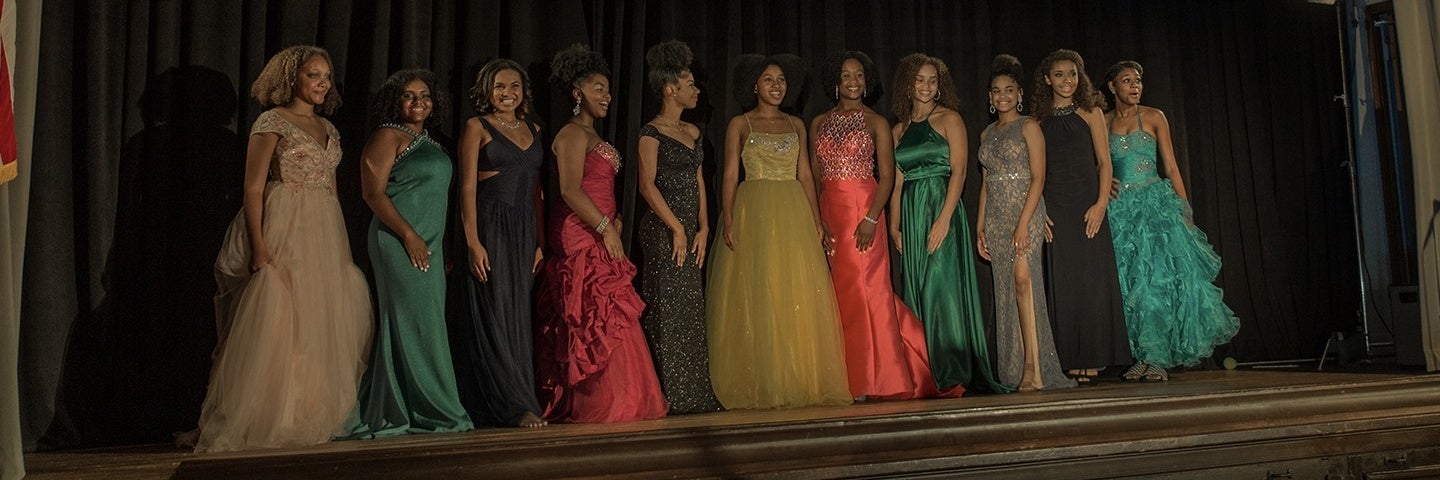When Miss Juneteenth director Channing Godfrey Peoples says that “Como was so good to us,” I knew immediately she wasn’t reminiscing about a trip to northern Italy. No ma’am. This Lake Como sits on the west side of Fort Worth, Texas, and beginning in the 1910s, shifted from being an affluent resort area to a predominantly African American neighborhood because Black folks could afford the low-cost lots. (I know this first hand because several generations of my family have called Como home for years.)
However, for Godfrey Peoples, who grew up in Fort Worth’s Southside and initially centered Miss Juneteenth‘s story there, she shifted its backdrop. “They swooped in and just let us come in. And I was like, this is meant to be in Como,” she says. “It was a blessing, really. I still don’t know how this movie got made. I’m just so grateful.”
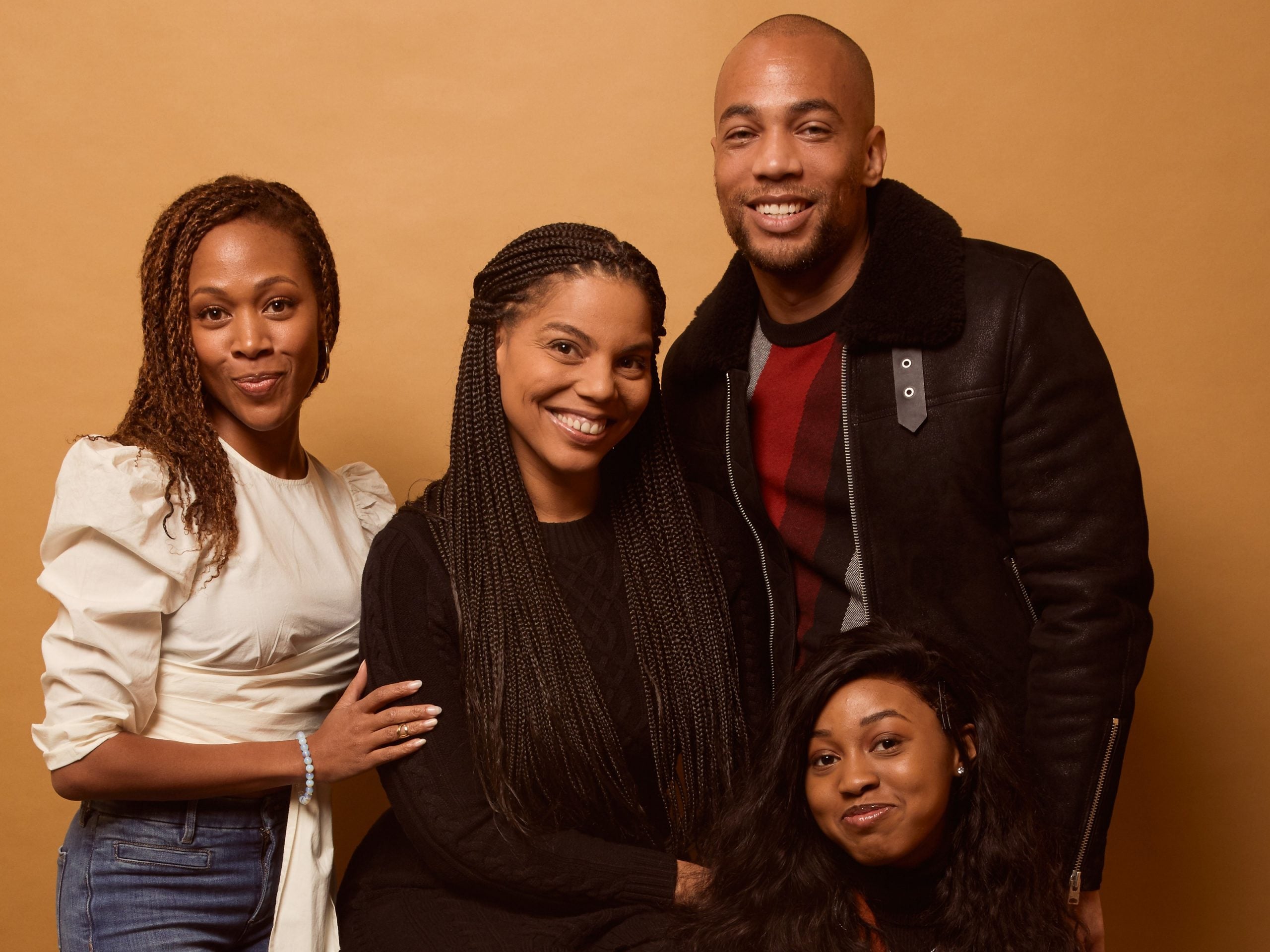
Godfrey People’s directorial debut—which premiered at the Sundance Film Festival last January and is now available on demand—follows Turquoise, a down on her luck single mom whose biggest life moment began and ended with being crowned Miss Juneteenth in high school. Or so she thinks. Armed with her pageant winning ways, Turquoise (played marvelously by Nicole Beharie) signs up her reluctant daughter (newcomer Alexis Chikaeze) in hopes she’ll take home the crown and a full-ride scholarship to an HBCU.
Although Turq’s efforts are steeped in parental good intentions, she’s up against a struggling ex, a stack of unpaid bills and an unshakable fear her daughter will end up unfulfilled like her. “Because winning Miss Juneteenth follows you throughout life… Turquoise is on a journey of becoming independent of her past,” says costar Kendrick Sampson, who plays her ex Ronnie. “The film covers the pageant world, which is intense. But it also gives a bit of history. Miss Juneteenth shows us in our element—just being country and celebrating—and also going through hardships and pushing through. That’s what beautiful about us.”
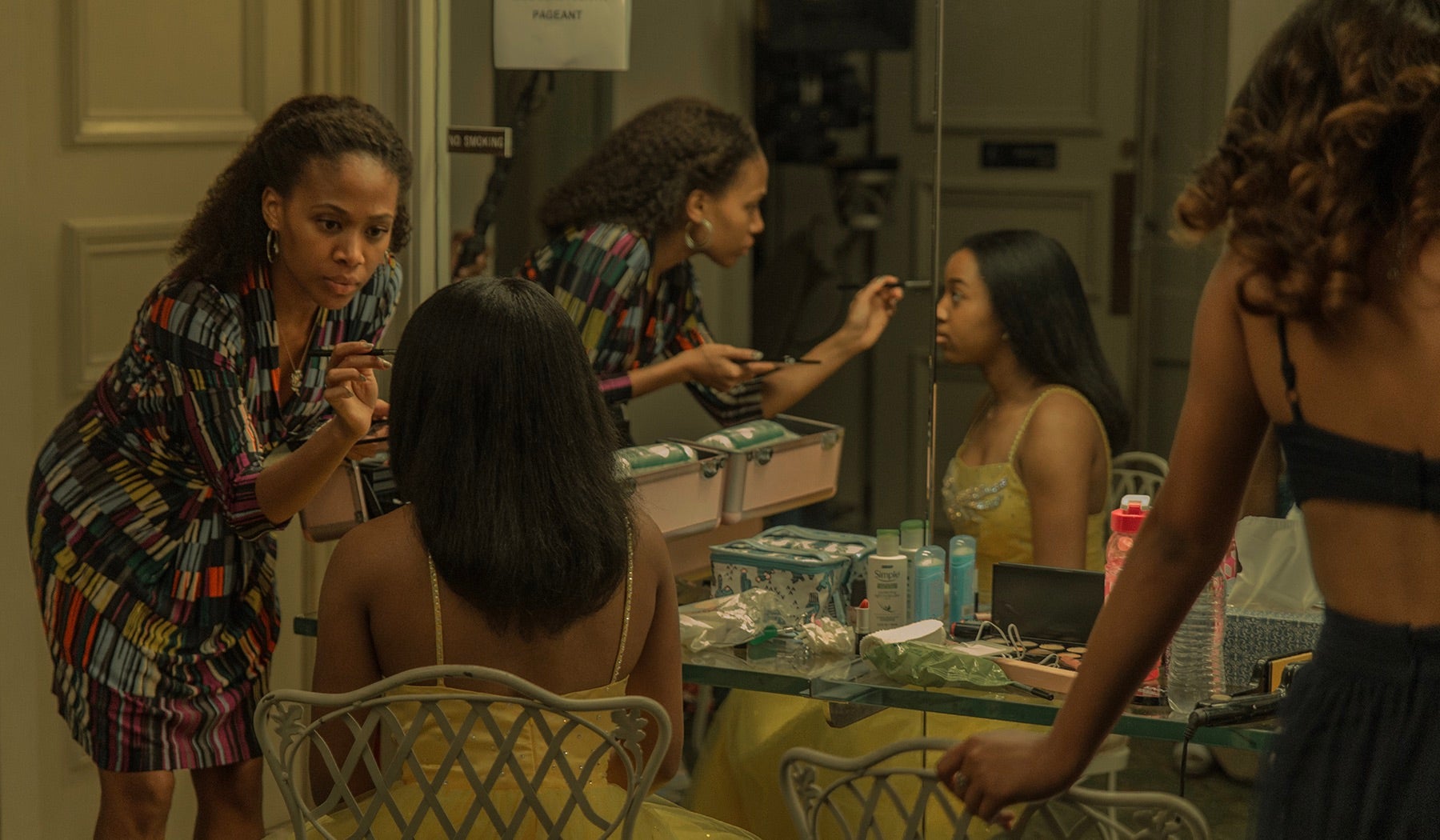
There’s one more reflection the Insecure star noted about being a part of this film. “Everybody Black,” he said with pride, in reference to filming Miss Juneteenth with Black folks in prominent positions behind the scenes. “Everybody Black, and produced by [director] Channing’s husband, Neil Williams.”
The filmmaker duo, who met in film school, bonded over shared tastes. “He’s from North Carolina, I’m from Texas. We both wanted to make films about the Black south,” says Godfrey Peoples. “With Miss Juneteenth, we were always looking at the film thematically, we’re doing a film about a day that commemorates when slaves in Texas got their freedom two years after everyone else. We were always thematically looking at what happens when good things come too late and we were mirroring Turquoise’s journey with that.”
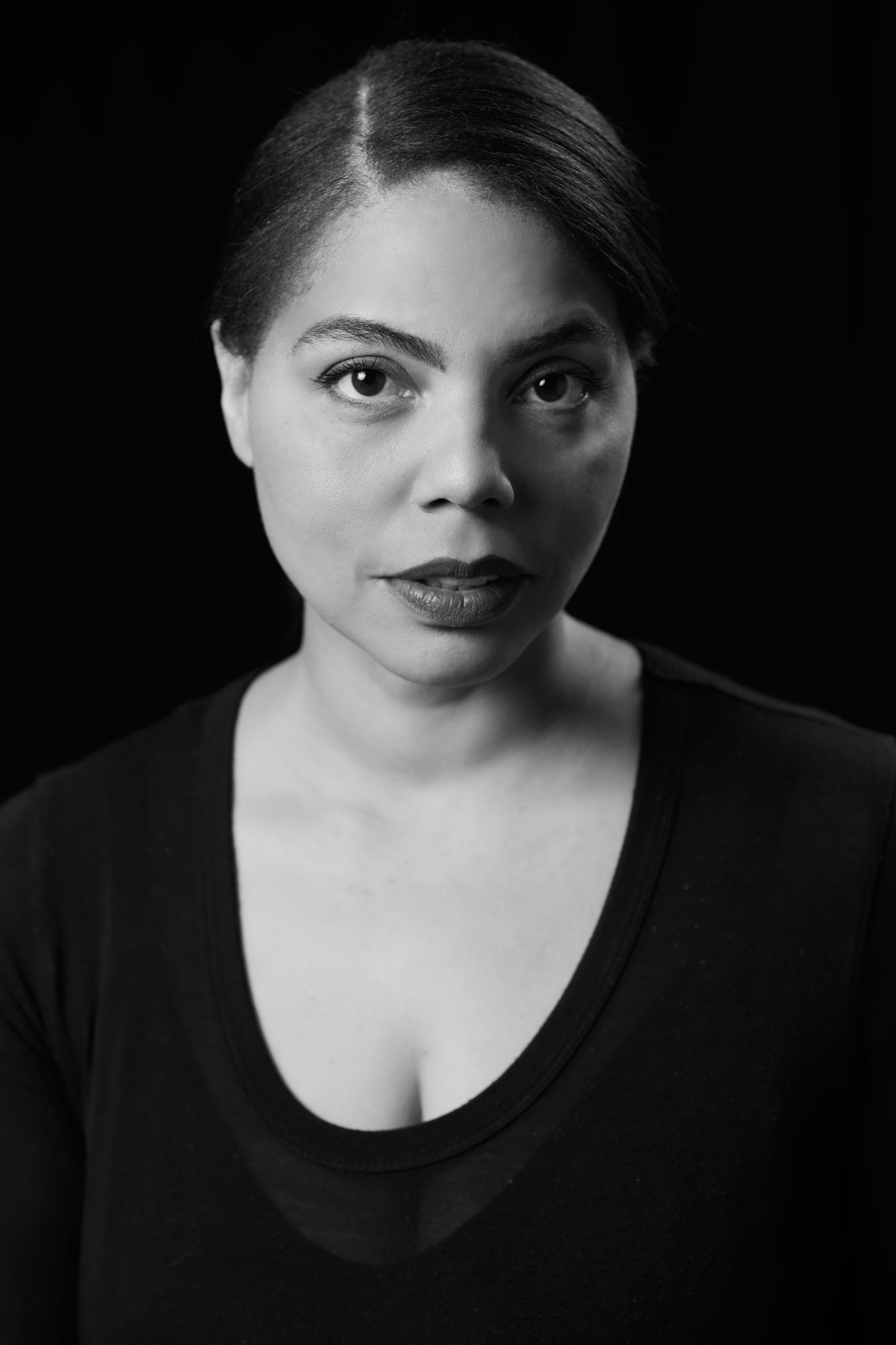
ESSENCE spoke with Godfrey Peoples at length about making Miss Juneteenth in her hometown, directing Nicole Beharie and celebrating the pageantry of Black Texas.
What were your Juneteenth memories growing up in Fort Worth?
CHANNING GODREY PEOPLES: One of the things I really remember is seeing those young African American women on stage. They were so graceful and so beautiful and so radiant and so hopeful, so excited about the future. That’s something that’s always stayed with me and I definitely have said this, but I still feel it, Miss Juneteenth was my version of Miss America.
I didn’t even realize how much it stayed with me until I got to graduate school and I was thinking about ideas for a first feature. After being outside of Texas and realizing every June 19th, I was always, ‘Happy Juneteenth!’ to folks. And they’d be like, what? And I’m like, wait a minute.
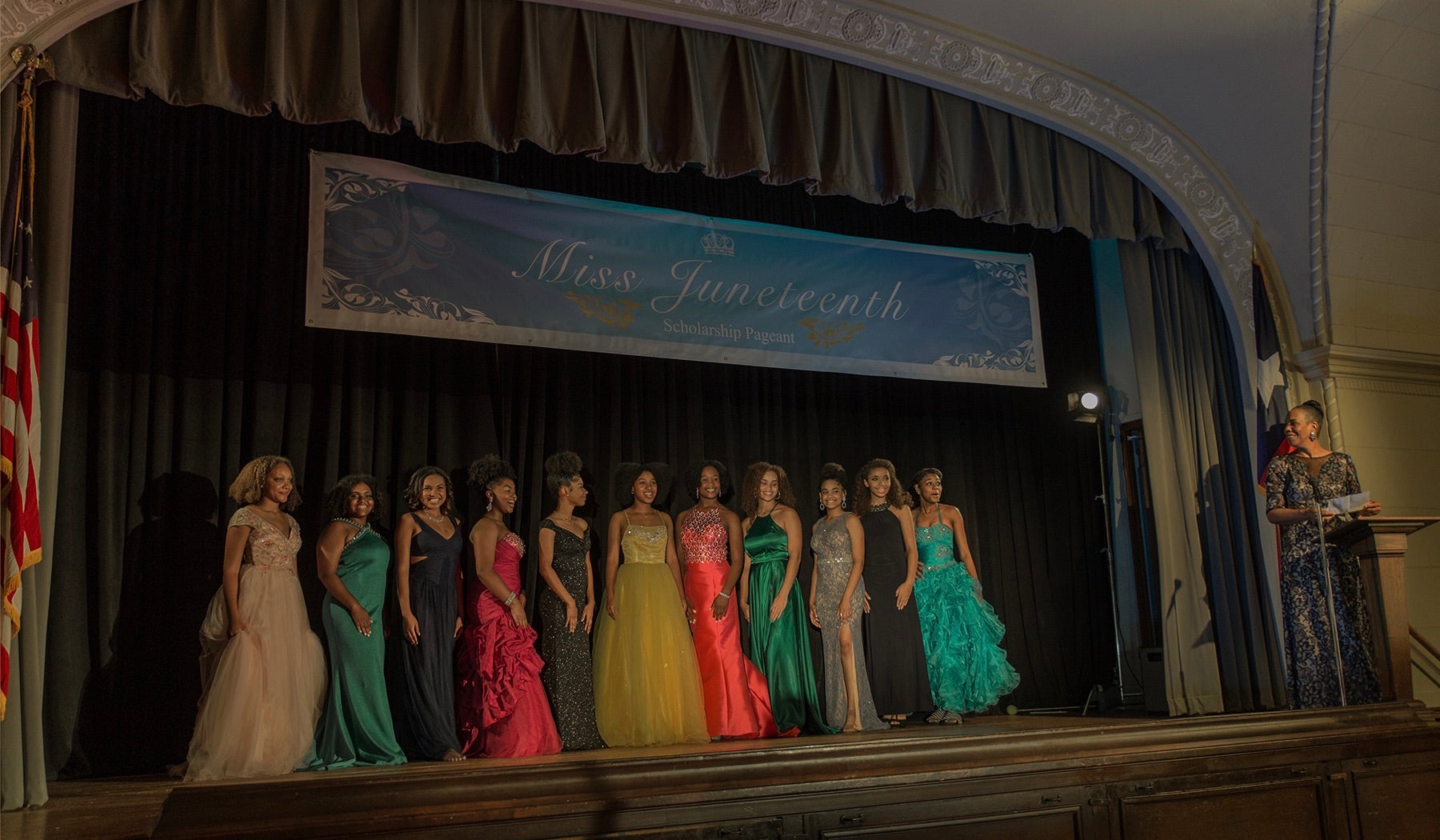
So those are my most prominent memories: seeing those young women and their faces. And seeing that’s them as an example of who I wanted to be. And I would always think what happened to those women when they got off stage? And some of them, I knew they stayed near the community, but there was just always that thought.
I don’t know if you feel this way, but Texas has a way of raising you where your worldview is only Texas. And I didn’t realize how much pride I had being from there until I left. Watching Miss Juneteenth, I definitely feel that undercurrent of pride.
GODFREY PEOPLES: Absolutely. I love being from Texas. I love being from the South. There are two sides of that, obviously we’re seeing today, but you can see it in my work. But I think even more appropriate is I saw this Teen Vogue review that said, “this is Black Texas.” And that’s what I realized is my heart. That’s what I grew up in, I grew up in Black Texas and that defined me in its own way. There’s that sense of pride. My husband pointed it out too. He says, there’s a sense of pomp and circumstance here and the way people carry themselves and culturally in the way that they display themselves—even in the way we funeralize. There’s always that care and that sense of pride in what we do.
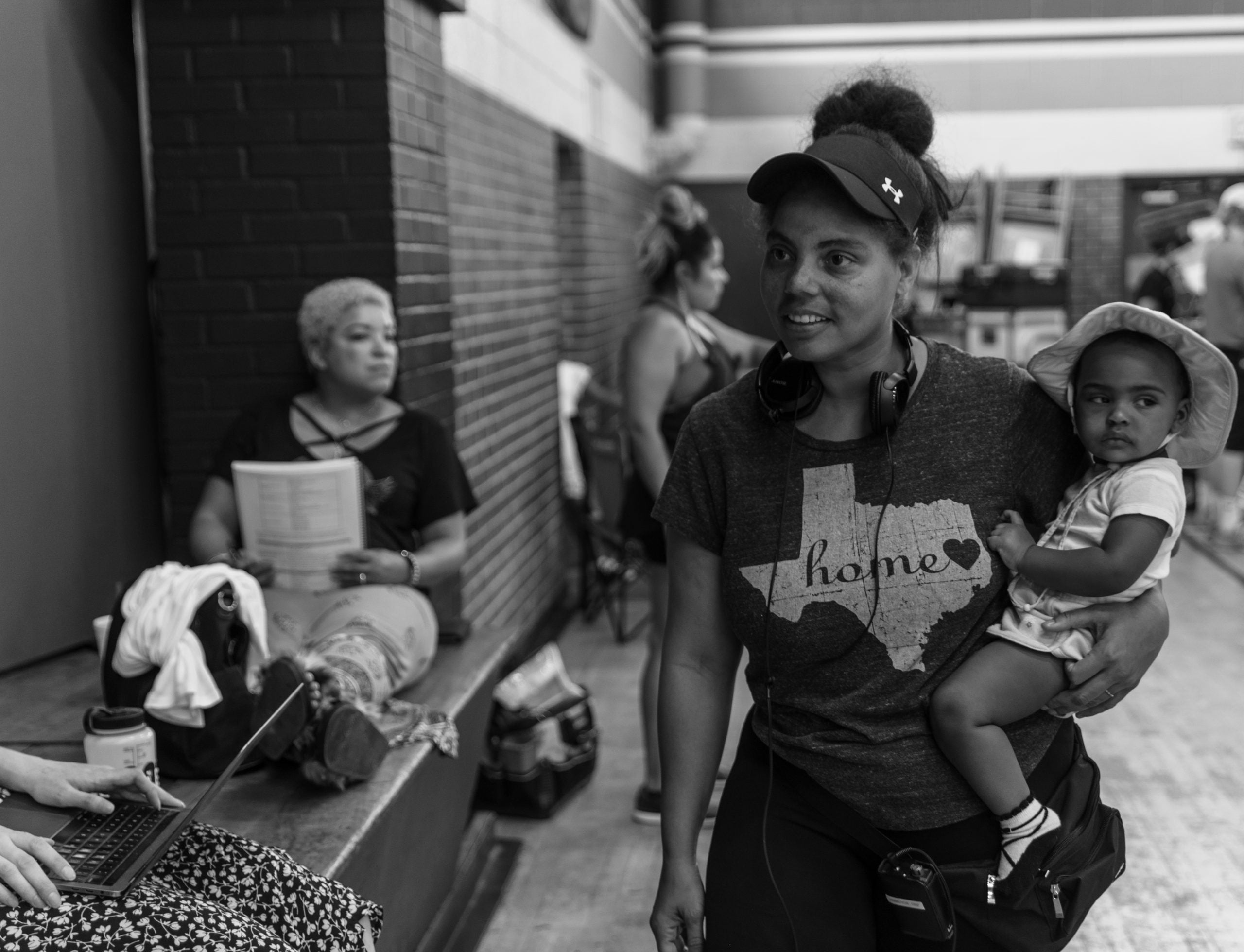
What I really love about Turquoise is that in high school she was at the pinnacle, at the top. But when we meet her in the present, she’s cleaning a toilet in a washed-up BBQ joint. But she never looks broken. There’s so much humanity in how Nicole plays her, but also I know that was how you wrote the character and how you directed Nicole. Tell me about writing Turquoise.
GODFREY PEOPLES: First of all, I love Turquoise so much myself. She’s so much of the women who I grew up with—my mother, my aunts, myself. We all had a specific dream and sometimes those dreams get deferred, especially living as a Black woman in America. And that doesn’t mean that you give up and that doesn’t mean that you don’t have dignity and grace, because that’s what they did. That dream just became a different kind of dream. And maybe it’s the dream that impacts people in a different way.
When you ask about the evolution of the writing, I think initially there was really a tough-love version of Turquoise own paper, but the funny thing was right around the time we found out we will be able to make the film, I found out I was pregnant, of course. [laughs] After I had my daughter and my daughter literally, she was under one when we started shooting. What I discovered in having this child was while there’s this tough love version in my head, which I wrote as a woman before I was a mother. But after I became a mother, I discovered this joy. Just this joy for this child and so that was my direction for Nicole, who’s a brilliant actor. We have this tough-love version of Turquoise on paper, but we’ve also got a marry it to this joy. And, as an actor who can carry that nuance, Nicole was able to grab onto that and bring Turquoise forward. Absolutely.
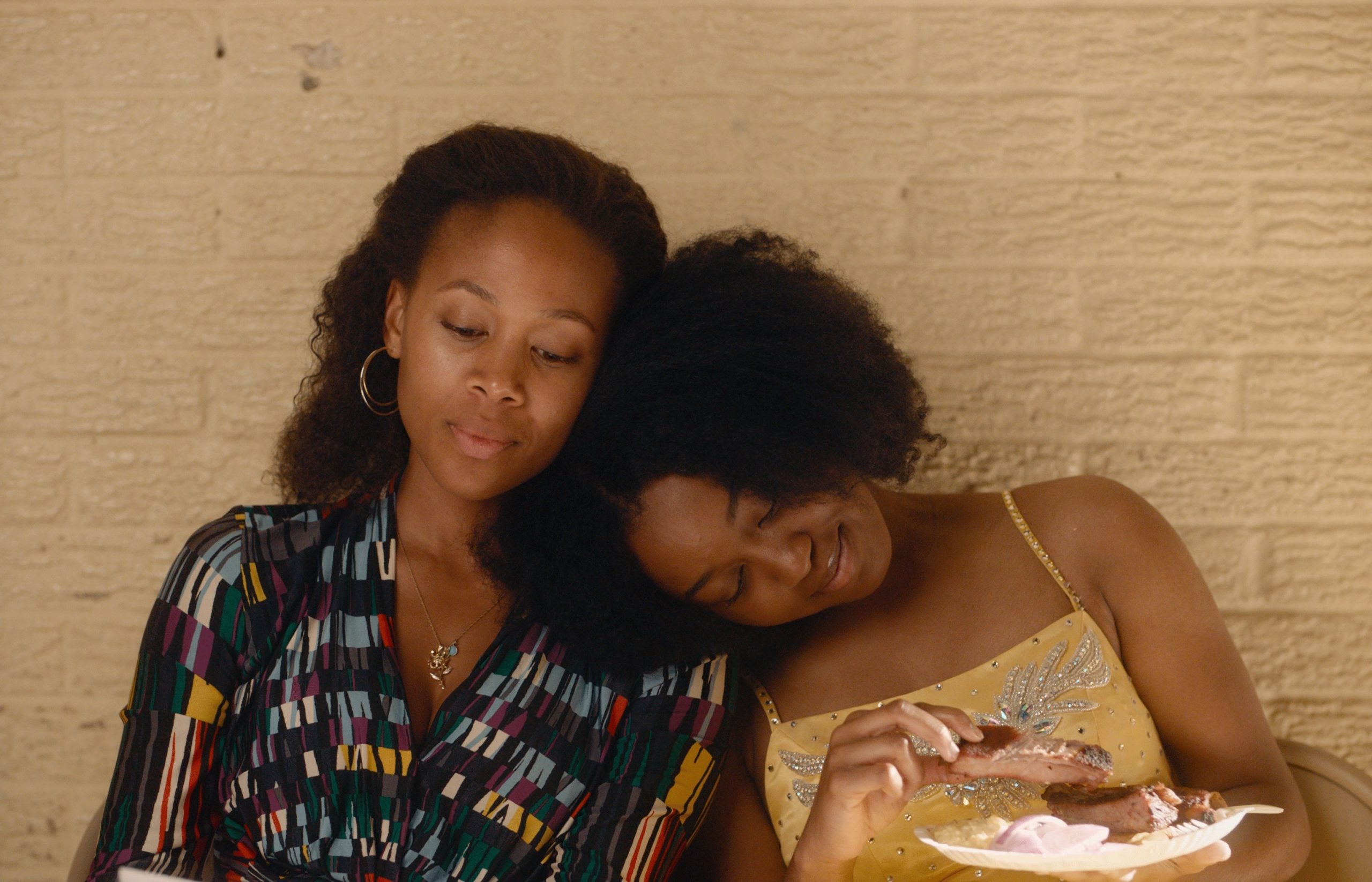
How did you define the look of the film? In addition to Nicole’s transcendent performance, there’s another layer of beauty with the imagery. The film seems a bit grainy and the colors a little muted—all in good ways. Was that intentional?
GODFREY PEOPLES: I feel like that’s Fort Worth. I feel there’s a timelessness to this place. We shot in all these existing locations like the bar is called Lloyd’s in real life. It’s been there forever. I’m not a super slick filmmaker anyway. You see how folks are looking in the film. They’re human, they’re real. Even in casting I told people, it’s a small film that we’re doing with big things, but I’m absolutely making a film about real folks.
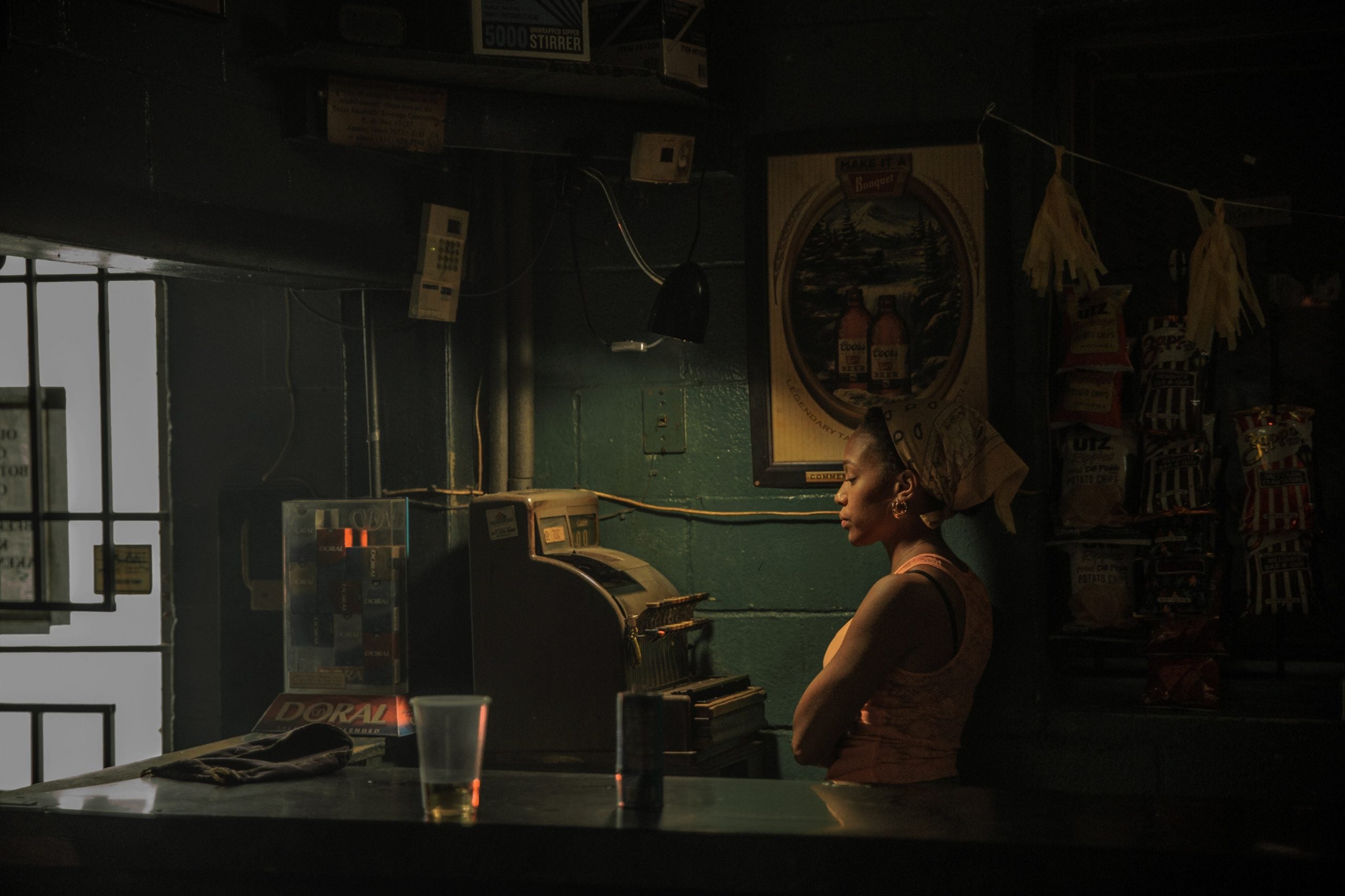
In addition, the way I approached the film creatively was that I wanted every aspect of the film to feel like it was just past its expiration date. The visual look, production design and costumes—all mirrored Turquoise’s feeling like life had passed her by. I wanted it to feel like Turquoise was holding on to things past their usefulness.
This was also rooted in the community we shot in, which was once a bustling hub for Black folks and is now being gentrified—except for neighborhood strongholds. That was our creative approach to mirroring the world we filmed in. Turquoise’s crown, her dress, her truck, her house all had a worn look. That’s how we created this lived-in aesthetic.
Miss Juneteeth is currently available in virtual cinemas, select theaters and on video on demand platforms starting June 19.
